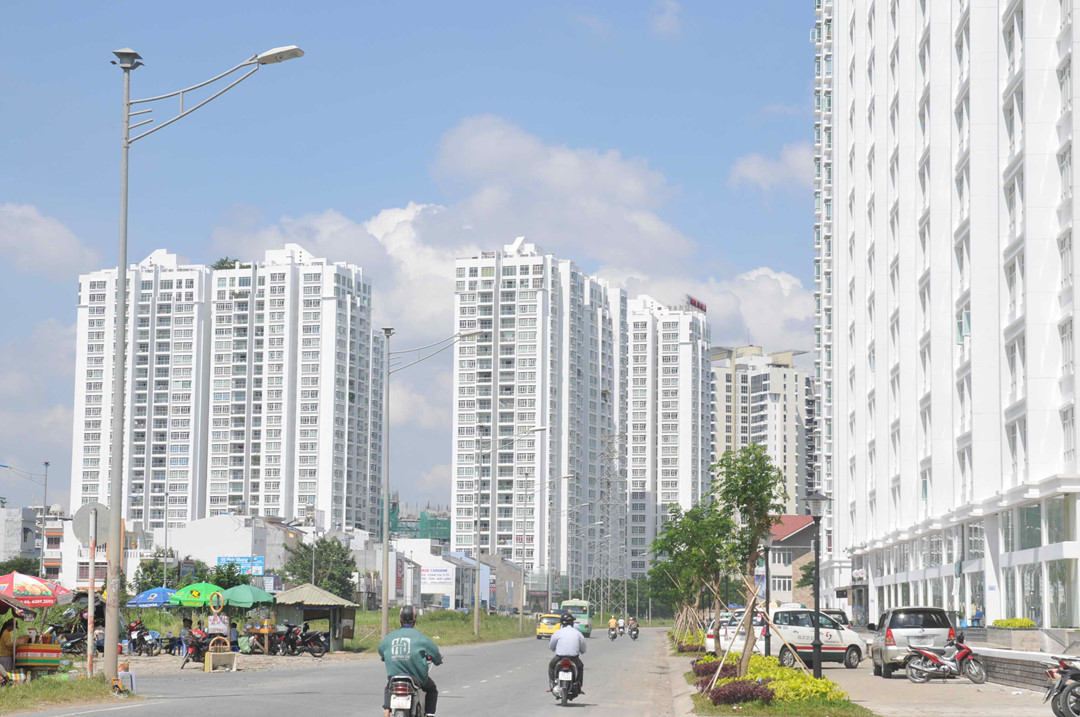From the concern of asset relocation or long-term foreign residence in which contain great potential risks as well as losses of resources, the amended Investment Law Plan introduced by the Ministry of Planning and Investment discourages offshore investment in the field of real estate.

However, experts and businesses said that this restriction goes against the market’s movement and is not necessary.
Bringing foreign partnerships and currencies to Vietnam
The Ministry is excessively anxious!
Many experts said the Ministry of Planning and Investment’s concerns about the “side effects” of foreign investment in real estate, asset relocation and long-term foreign residence, which may contain risks and resource losses, is not necessary. The government can easily take control of cash flow and taxation if individuals and organization invest in oversea properties by official ways. Still, most of the investors’ dreamlands like the USA have tight policies over the matter. Therefore, it seems that the only way through for investors is by "less official" ways. Such ways contain great risks and need strict control.
Mr Nguyen Vu Bao Hoang, General Director of Thuduc House Company, who has invested in real estate of foreign countries, said foreign investment, especially in real estate, happened by nature of the market mechanism. It can be seen as a business opportunity for enterprises to expand and grow, hence, it’s understandable for them to take the chance. Nevertheless, it is important to make a formal investment with administrative procedures and the provision of laws and regulations. Furthermore, tax and financial obligations must be clear and under laws. “When investing abroad, we not only bring the domestic currency to foreign countries, but also receive foreign currencies. For instance, all business activities of Thuduc House have partnership with foreign partners,” Mr Hoang analyzed.
According to Ms Nguyen Vu Thien Diem, Chairman of Thien Minh Group's Board of Directors, Vietnam real estate market is currently facing difficulties, leading to the trend of investing oversea in countries like the USA. Offshore investment brings the same profit as domestic investment yet more stable. Furthermore, most countries in the world has encouragement attitude toward foreign investment (foreign enterprises invest in domestic market). Meanwhile, Vietnam has gone against the global trend by having strict control over the matter. Ms Diem provided further explanation regarding the matter. “Going against the global trend may cause avoidable problems to Vietnam and put domestic enterprises into the disadvantage. Currently, Vietnam has joined the WTO and the enterprises themselves would strive to make profits instead of loses. There are more than I can name who are Vietnamese expats that invested in foreign property and succeed. For instance, Thien Minh Group has been quite successful with the US real estate market, creating a strong foundation to grow at the domestic market. What we need are good tax management and post-inspection, not another difficulty.”
Chance to expand oversea
According to real estate expert Phan Cong Chanh, limiting people and businesses investing abroad in the field of real estate is a step back in the integration process and affects the freedom of doing business and owning houses oversea. Only enterprises that have domestic potential dare to invest abroad, like in the case of Hoang Anh Gia Lai Group, who had put a big bet on ASEAN countries such as Malaysia, Laos, and Cambodia. The act of foreign investment is not only to expand the business, but also to promote the image of Vietnam. Investing oversea is justifiable. Prohibition or restriction, in this case, would only cause more problems, which result in illegal transactions.
“Offshore investment is not a loss of the country's resources because investors can bring foreign currencies back to Vietnam. This is also an opportunity to show Vietnam’s prosperity, demonstrating the deep integration of Vietnam into the world market, and promote the image of our country and people. Still, it is necessary to have clear mechanisms and barriers to limit black credit transfer abroad by the non-quota way. We also need to delineate cases for effective management, not just general provisions,” Mr Chanh said.


















